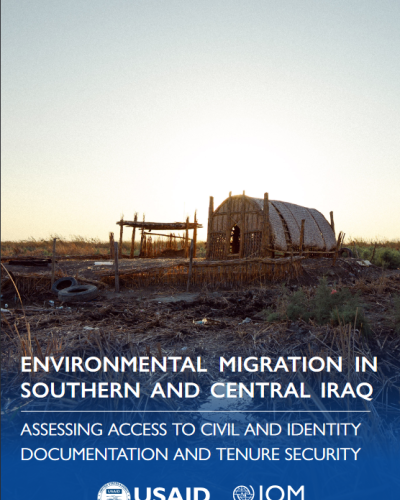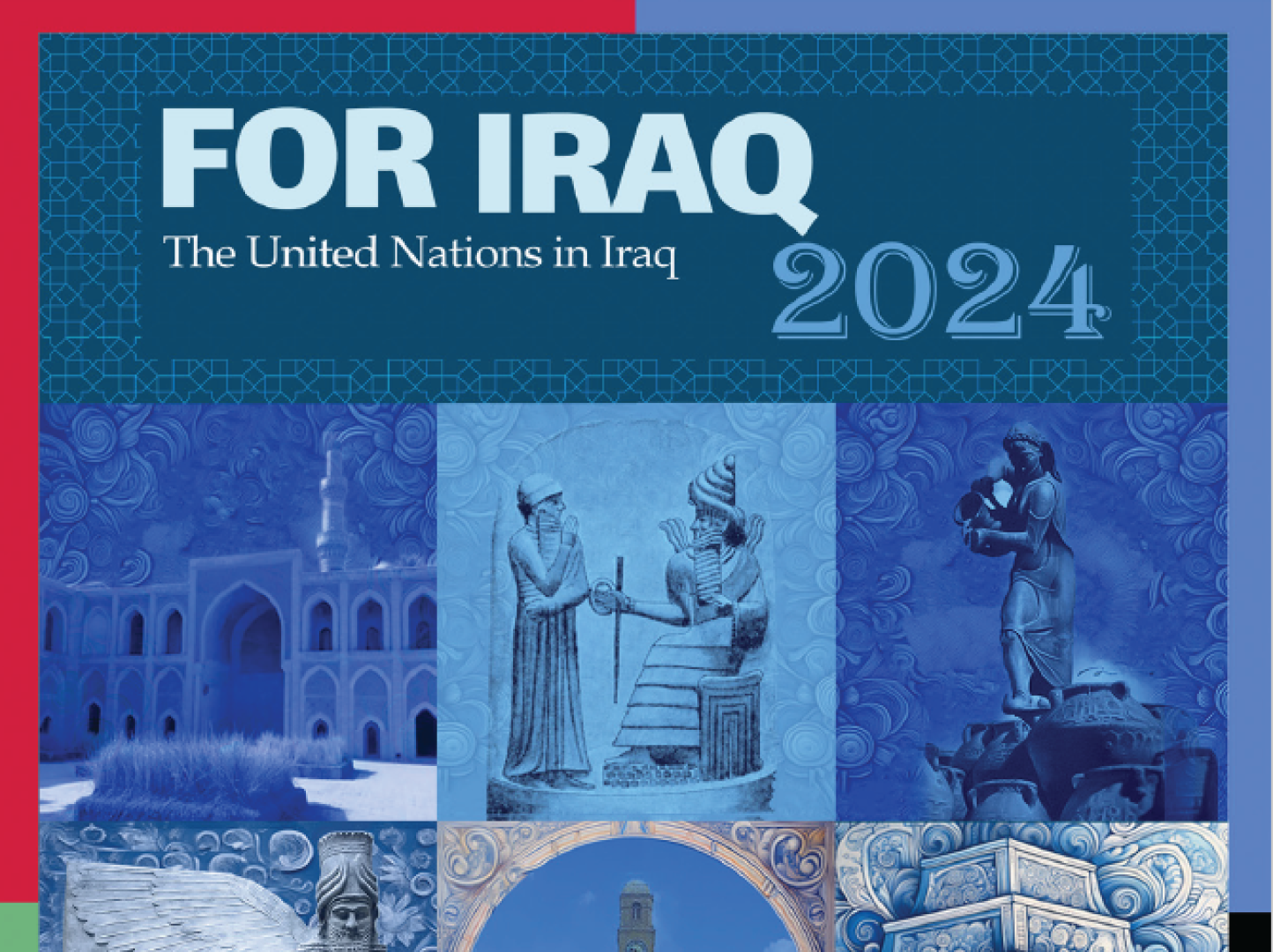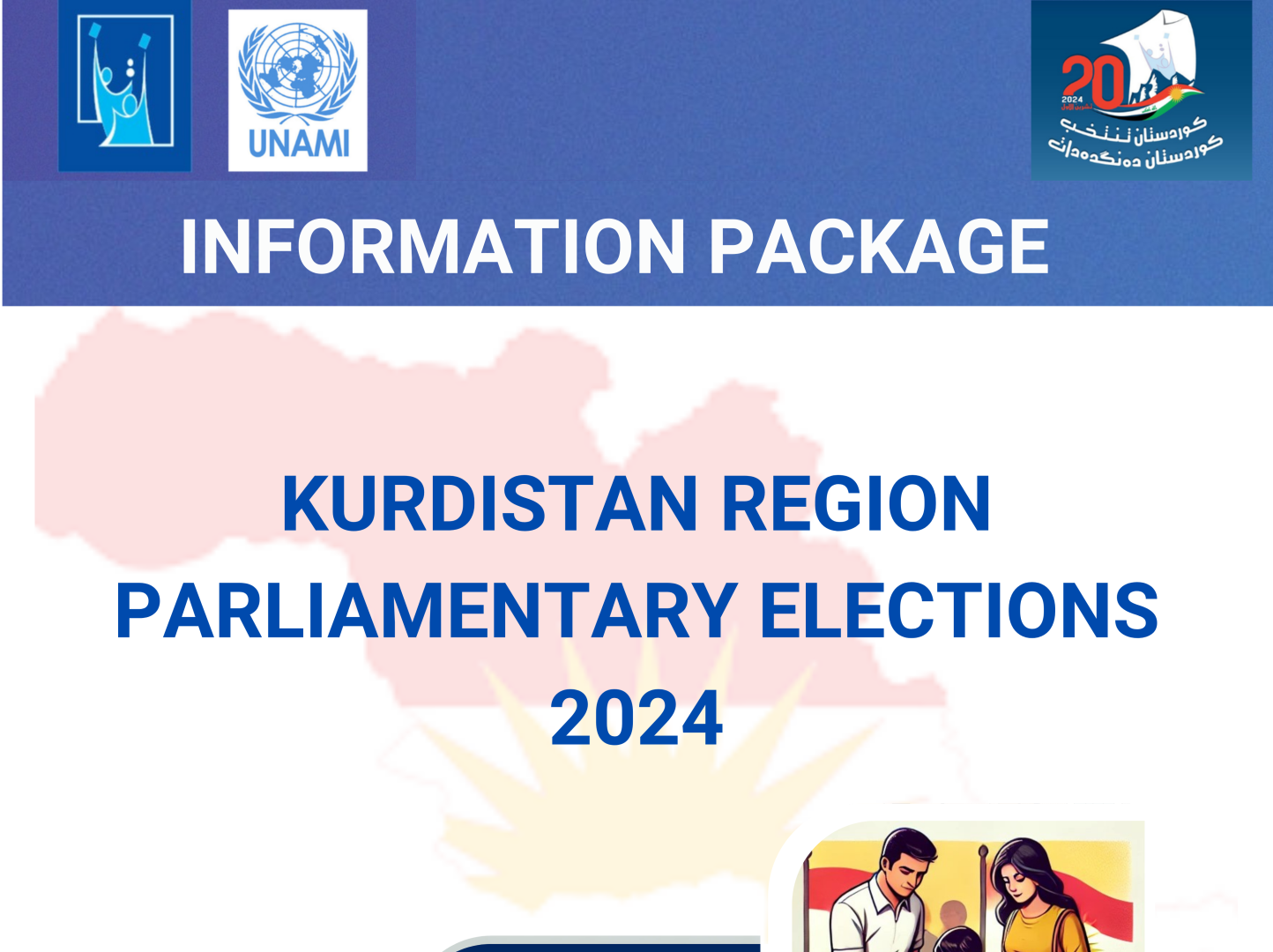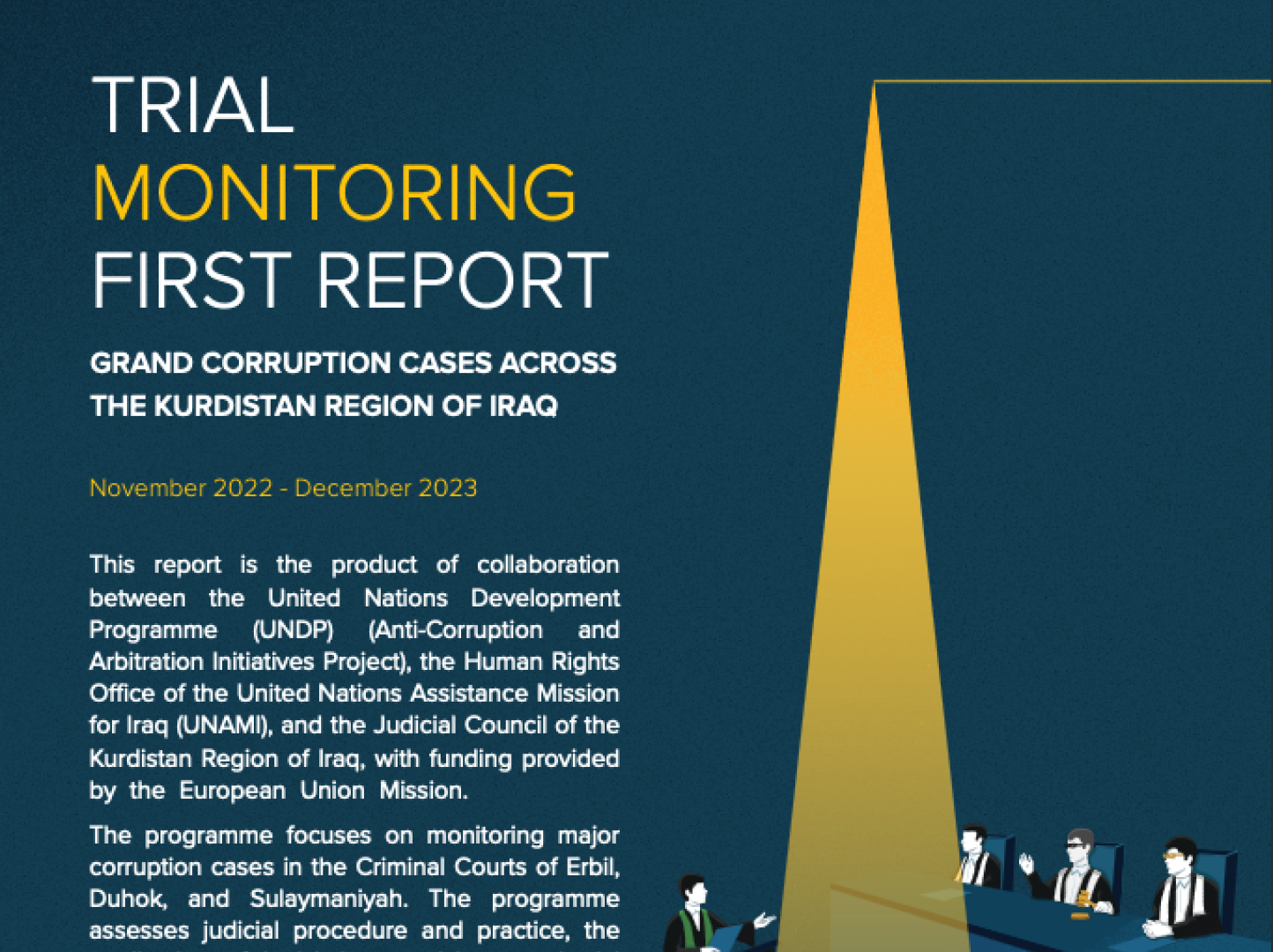Environmental migration in Southern and Central Iraq: Assessing access to civil and identity documentation and tenure security

Climate change and environmental degradation in Iraq is leading to the displacement of rural communities.
Displaced individuals often move to urban centres, settling in informal areas with compromised living conditions. Irregular housing tenure is common, with environmental migrants facing insecurity in housing and limited access to rights. Additionally, they face resistance from local authorities and communities, who associate environmental migrants to criminal activities and negative labour market changes, leading to integration and social cohesion challenges. Environmental migrants often feel discriminated against and marginalized, contributing to tensions between host and migrant communities.
This assessment found that environmental migrants need legal assistance to access identity and civil documentation, as well as to increase their tenure security and overall access to House, Land and Property (HLP) rights. Most of the barriers hindering access to documentation and HLP rights, as well as the consequences for lacking such documents, are similar to those of internally displaced persons (IDPs) affected by the 2014–2017 conflict. Opaque processes, inaccessible institutions and prohibitive costs, alongside logistic issues such as lack of access to transportation services to visit relevant sites where civil documents are issued, can make securing core documentation nearly impossible for population affected by displacement.
However, environmental migrants face challenges in recognition not only of their needs, but in some cases, of their status as IDPs.
However, unlike IDPs who were displaced after 2014 in areas affected by the Islamic State of Iraq and the Levant (ISIL) occupation, environmental migrants did not lose documents, nor did these get destroyed or confiscated. They also do not face issues related to security clearances to apply for documentation. While most participants to focus group discussions (FGDs) expressed having documents at the time of displacement, these expire and cannot be renewed.
However, environmental migrants, particularly in Najaf, face particular issues regarding the official recognition as IDPs by the Ministry of Migration and Displacement (MoMD) as well as the access to housing cards, which become a barrier when trying to access documentation and increase tenure security.
This is particularly challenging for parents trying to document newborns, with growing numbers of children who do not have access to identity documentation.
Environmental migrants in informal living conditions face tenure insecurity and eviction risks, particularly in private lands or those public lands allocated for construction and infrastructure. While IDPs relocating for agricultural activities have the potential for improved tenure security, this is contingent on the eligibility for housing cards or IDP status. Lack of information exposes environmental migrants, particularly women, to exploitation and fraud.
The assessment also identifies gender-specific challenges, emphasizing the need for legal assistance and protection services. Additionally, a gap is noted in available data concerning compensation schemes accessible to environmental migrants.






